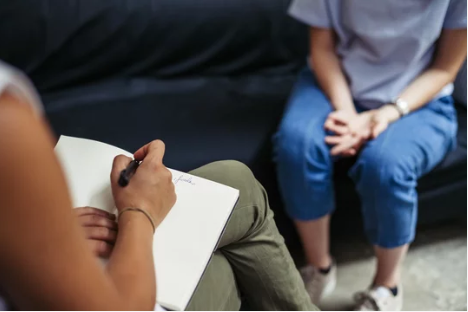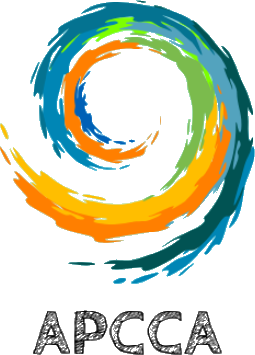Domestic Violence (DVA) and Intimate Partner Violence (IPV)
What is Domestic Violence and Abuse (DVA)?
Domestic violence and abuse mean one person trying to control, scare, or hurt another person. This can happen between partners or family members. It’s a widespread problem that many people face.

Domestic abuse can involve different harmful behaviors such as (but not limited to):
- Controlling behavior that includes intimidation, isolation, and threats of violence
- Emotional or psychological abuse
- Physical or sexual harm
- Controlling finances
- Harassment or stalking
- Digital abuse through online platforms
.
What is Intimate Partner Violence (IPV)?
Intimate partner violence is when harm or aggression occurs between people in a romantic relationship. This can happen with current or past partners, and it can vary in how often it occurs and how serious it is.
My Expereince
I want to take a moment to talk to you about why I understand what you’re going through and why I could be the right counsellor for you. I’ve been where you are—lost in the darkness of an intimate partner violence relationship. I know what it feels like to lose your identity, to feel like a shell of your former self, and to be trapped in a cycle of fear and isolation.
Breaking Point
There was a time in my life when I believed that I deserved the suffering I was enduring—that I wasn’t worthy of love or support. I was scared, alone, and didn’t know how to ask for help. I remember thinking that if I left my relationship, I’d be a bad mother, that I wouldn’t be able to fight for my child, and that I would lose everything. It felt hopeless, and I lost my financial independence and chances at personal growth, including my dreams of going to university.
But I reached a breaking point. I had to face the choice of sinking deeper into despair or finding the strength to fight back for myself and my daughter. With the support of a few friends who didn’t abandon me, I started to pull myself out of that dark place. It took time, patience, and a lot of hard work, but I discovered that I could trust myself again.
Ongoing Battles
Leaving the toxic relationship didn’t mean I was free; I had to embark on a journey of self-discovery and healing, rebuilding my sense of self from the ground up. It was chaotic and challenging, but each step I took made me stronger. I learned to accept my past and to transform my experiences into lessons of resilience.
Is there hope?
Now, I can stand before you with a sense of hope and conviction. I’m here to tell you that you don’t have to go through this alone. Together, we can navigate your journey toward healing and rebuild your sense of self. I understand the complexities of what you’re facing because I’ve lived it. I can offer a safe space for you to express your feelings and the tools to help you reclaim your life, just as I did. You deserve to live fully and thrive, not just survive. I’m here to support you on this path.
New Relationships
I understand how challenging it can be to navigate a new relationship after coming out of an intimate partner violence situation. The journey is often fraught with fear and uncertainty, and you might find yourself grappling with the demons of your past. The memories can linger, and it’s completely normal to struggle with trusting yourself to recognize the red flags. Sometimes, old behavior patterns can resurface, making it feel like you’re stuck in a cycle that’s hard to break.
New Partners Perspectives
I also empathize with how difficult it is for new partners who genuinely want to support you. It can feel like a battlefield, trying to avoid triggering those painful memories while striving to build a loving and trusting relationship. It’s a delicate balance, and both you and your partner may need guidance as you navigate these complexities together.
Brave Space
That’s where I can help. I have firsthand experience with these challenges, and I can provide a brave space for you to process your feelings and fears. Together, we can work on strategies for recognizing patterns, building trust, and fostering healthy communication in your new relationship. You’re not alone in this; I’m here to help you and your partner understand each other better so you can create a strong, nurturing bond moving forward.
FREE Resource for Survivors: Your Guide to Rebuilding Emotional Intimacy
I’ve created a free resource just for you: “Your Guide to Rebuilding Emotional Intimacy After Trauma: How to Heal and Trust Again.”
In this guide, you’ll learn:
- How trauma affects emotional intimacy and relationships
- Practical tips for rebuilding trust and confidence
- Ways to open up to new relationships or strengthen the ones you’re in
To receive your free copy, email me at carina@beseencounselling.co.uk with “Free Guide” in the subject line, and I’ll send it directly to your inbox.
Healing is possible, and you don’t have to do it alone. I’m here to help you take the first step.

Seeking help
Anyone can experience domestic violence or intimate partner violence, and anyone can be the one causing harm.
If you are facing domestic abuse, you don’t have to wait for a crisis to seek help. It’s crucial to reach out to someone and know that support is available. Remember, you are not alone.
The impact ...
The impact of domestic abuse is profound and affects survivors in various ways. It can harm their mental, emotional, physical, social, and financial well-being, as well as their families, children, and broader society. There are costs related to police, health services, and other support systems, and survivors may also face difficulties in seeking help or justice, especially for certain social groups.
Children witnessing or experiencing abuse need time to heal and adjust. Leaving an abusive situation can be scary, and there may be lingering effects even after leaving. It’s normal to have fears about dating again, feeling unlovable, or not trusting others. It’s important to seek help from someone who understands what you’re going through.
Supporting someone who has experienced domestic violence or intimate partner violence involves navigating their trauma, flashbacks, and potential PTSD. It can be challenging for them to open up, but bottling up emotions is not healthy. I can provide support in these situations as well.
It’s also worth noting that both men and women can be victims or perpetrators of domestic violence and intimate partner violence. Society is recognizing this, and it’s crucial to offer help to anyone affected by these issues.


